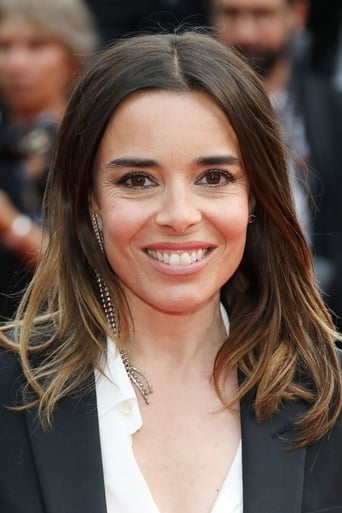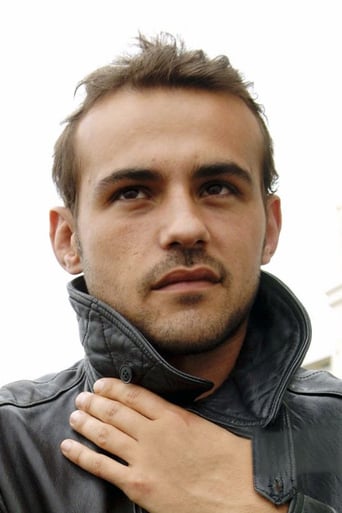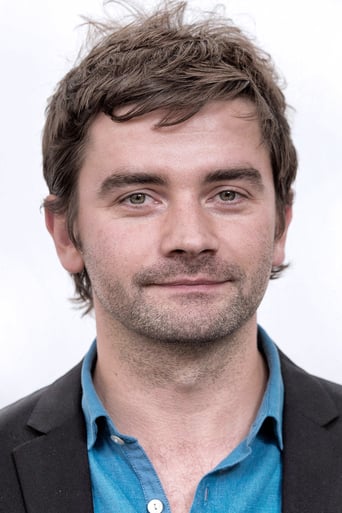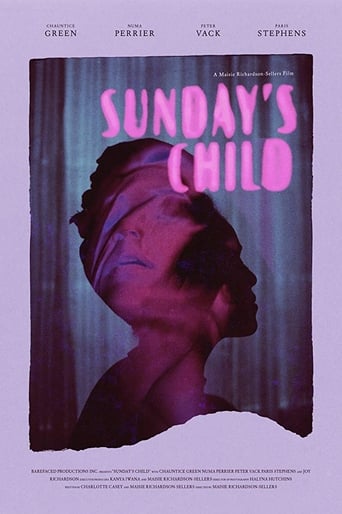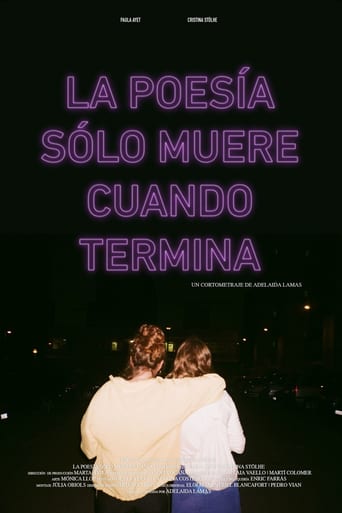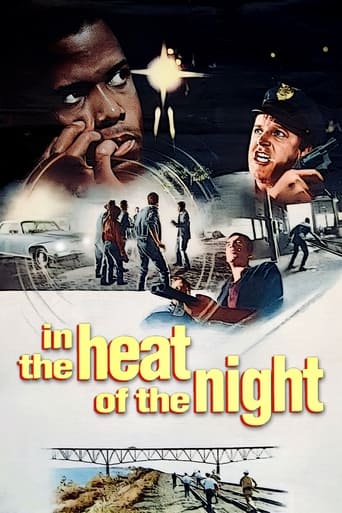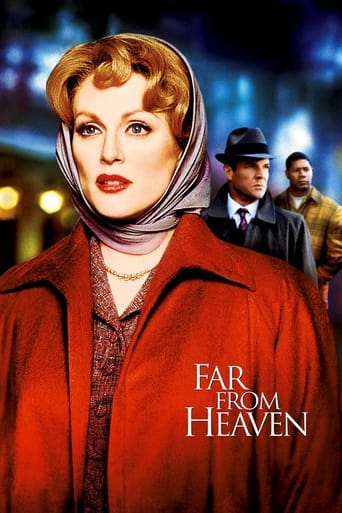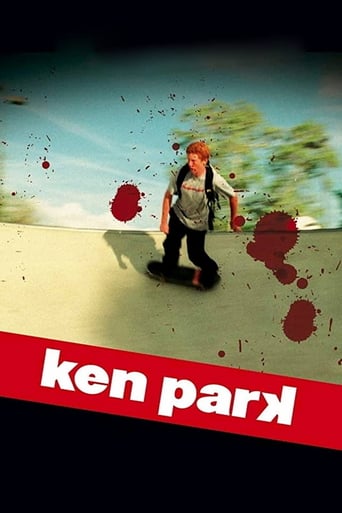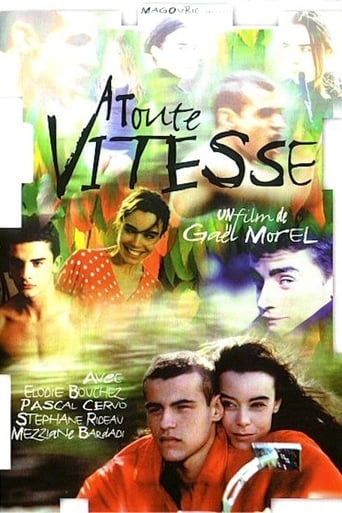
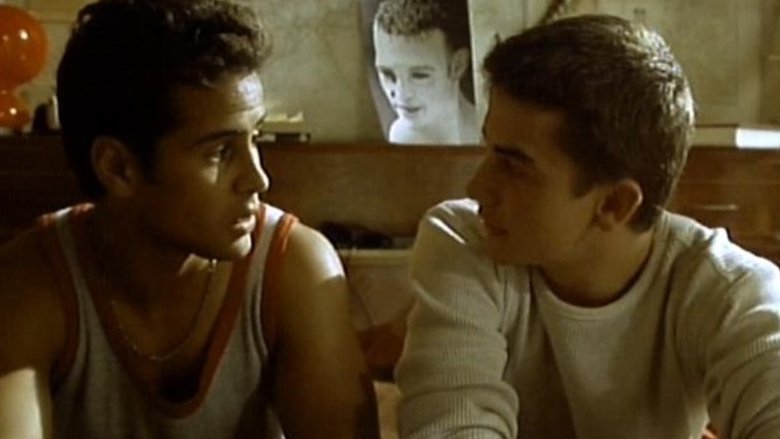
Full Speed (1996)
A brief extract of four kids' lives somewhere in France. Quentin, who won a writers contest and now pays more attention to his career as an author than to his friends, beautiful Julie, his girl-friend, much more mature than she looks, falling in love with Quentin's very best friend Jimmy, who is kind of stuck in his unability of self-expression and grown up under bad social circumstances. And there is the shy boy Samir, exiled from Algeria, who lost his "brother" and only friend some time ago. Samir heavily falls in love with Quentin, but he can't handle it...
Watch Trailer
Cast
Similar titles
Reviews
Sick Product of a Sick System
One of my all time favorites.
Excellent but underrated film
Easily the biggest piece of Right wing non sense propaganda I ever saw.
Can homosexuality be successfully articulated in society? According to some, homosexuals are doomed to be secluded and restricted to marginalized worlds. As filmmaker, Gaël Morel has often chosen to portray such worlds, enquiring deeply below the surface of what actually means to be an outcast.In "Le Clan", for example, Morel digs into the lives of outcast youngsters, which share an obvious resemblance to some of the protagonists of "À toute vitesse". There is, however, a much subtler approach of such topics in this film, perhaps as part of André Téchiné's influence (who appears listed in the credits).Spivak's book "Can the Subaltern Speak?" explains that authority is built upon a specific loci of enunciation. In this film, traditional society has already attributed a certain loci or place to those who dare to defy the heterosexual normative.Nonetheless, Morel goes much deeper than that. Handsome and talented Quentin is a young writer that has just won an award and is on his way to success. He does have quite an ambivalent position about marginalization. For example, he accuses the French bourgeois of misunderstanding his novel, as he has no intentions of depicting outcasts because for him they are normal people; he affirms that it is the bourgeois who constantly ostracize and discriminate others. Clearly, some of that is truth, as the mesocratic class tends to judge harshly those who do not fit into the symbolic order.As the film goes on, Quentin starts spending time with Samir, an Algerian boy that is still grieving the loss of his boyfriend; Quentin's tantalizing physic presence serves as cannon fodder for Samir's masturbatory urges as can be explicitly seen in one scene. Will the two boys consummate their passion or is only one of them interested in such consummation? Quentin apparently defends the rights of the Algerians as he publicly accuses acts of racism and violence, but at the same time he despises Samir just as much as he spurns Julie, his girlfriend or Jimmy, his best friend (interpreted by Stéphane Rideau, an actor extremely familiarized with gay productions). Over and over again, Quentin is seen as someone who takes advantage of social unfairness in order to gain publicity for himself, and certainly once he starts making his way in the publishing world he decides to move to Paris, quickly discarding friends and love interests.Jimmy is a jobless guy, with no real prospects of a 'decent' future. And Samir is a boy who barely has enough money to pay the rent. Except for Julie, all other characters are on the edge of poverty or delinquency. They are, however, strong and coherent. Julie trusts in the possibility to have a good relationship whether with Quentin or someone else, Samir decides to defend himself against French fascists that brutally assault him while Jimmy bravely defends Samir even if that means risking his physical integrity. Quentin, on the contrary, is unable to find coherence, his loci of enunciation becomes so firmly inserted in the symbolic order that he loses all true authority. That's how we can understand the lack of commitment in his acts: he has a relationship with Julie but seems willing to let her go as he sees fit; he starts a sentimental relationship with Samir only until he completes enough research for his next book; he supports gays or Algerians only as a marketing strategy, but he is never there when his friends need him. Despise all that, Morel manages to create a fascinating, talented, smart young man that carries the traits of a hero although none of the true virtues.
A sensitive film debut that tackles human relationships between 4 youngsters against the usual backdrop of Racism, Homophobia, Violence and Teenage unrest in modern multicultural France. Although it has and a quite nice photography, it resembles too much to its predecessor "Wild Reeds", a beautiful moving film by director Andre Techine. The four main characters are nearly a grown-up transcription of the ones' in Techine's film; the French countryside, the mixed feelings, the motorbike rides, the young intellectual-director's alter ego, the Algerian question,...nearly everything looks like a rework but in a less subtle and intelligent way. Nevertheless the film is worth to see, certainly if you liked "Wild Reeds", because of its gay sub-text (always exciting in French Cinema), the powerful performance of E.Bouchez and S.Rideau and the sensitive direction of Gael Morel. If you liked this film check "Les Terres froides" (just on French TV), "Presque Rien" and "Krampack", and not forget to watch "The Battle of Algiers" for a harsh realistic account of the events that lead to the independence of Algeria from France.
Interesting primarily in relation to an earlier French film "Wild Reeds" (1994), which was the first film featuring several of the young actors here. Unfortunately it just does not "translate" - the interwoven themes of French political, racial and class tensions, and fallout from the Algerian conflict (which no doubt have great resonance with French youth) will be almost entirely lost on American viewers, who may see the film primarily due to its minor gay sub-text. The motivation behind some key scenes, particularly involving violent conflicts between groups of young guys, is pretty much incomprehensible.
I took this movie on sexual orientation, racism, and relationships to be a slightly schematic allegory about how French intellectuals have abdicated their responsibility to marginalized people in society--Quentin, the successful young (white)writer takes off for Paris to be lionized by the literary establishment, leaving his working-class, gay, and North African buddies to defend themselves against the local rightwing thugs. He really has little interest in his erstwhile friends except to instrumentalize their pain and anger as material for his new book and for a public display of "concern." A bit slow, but not a waste of time.
